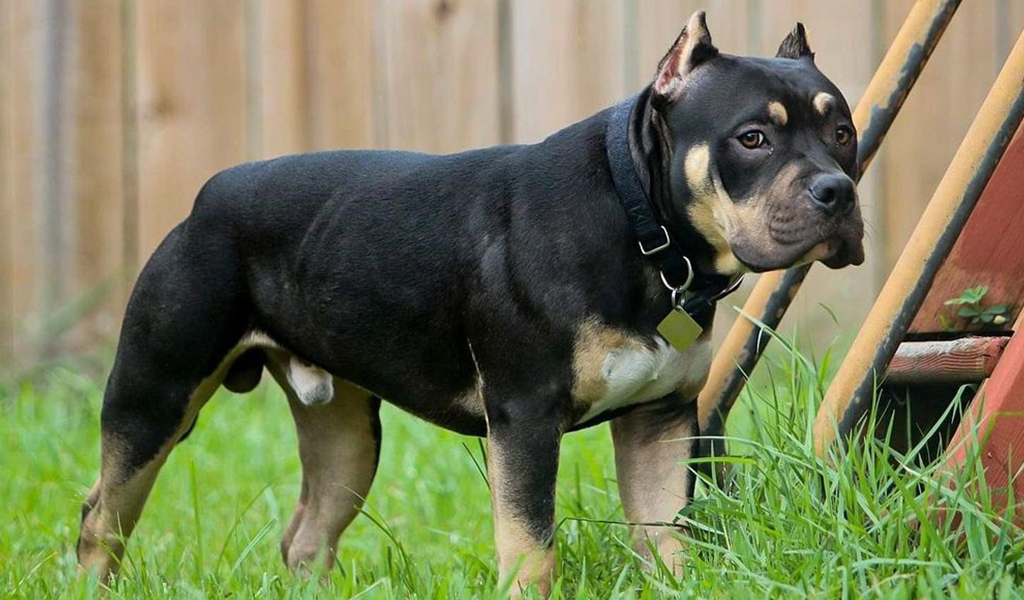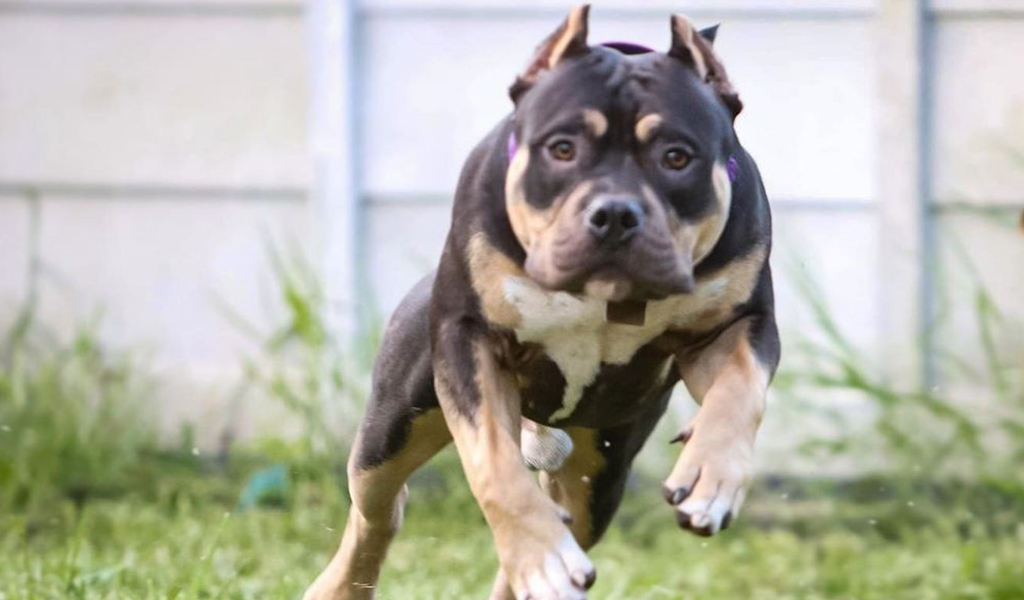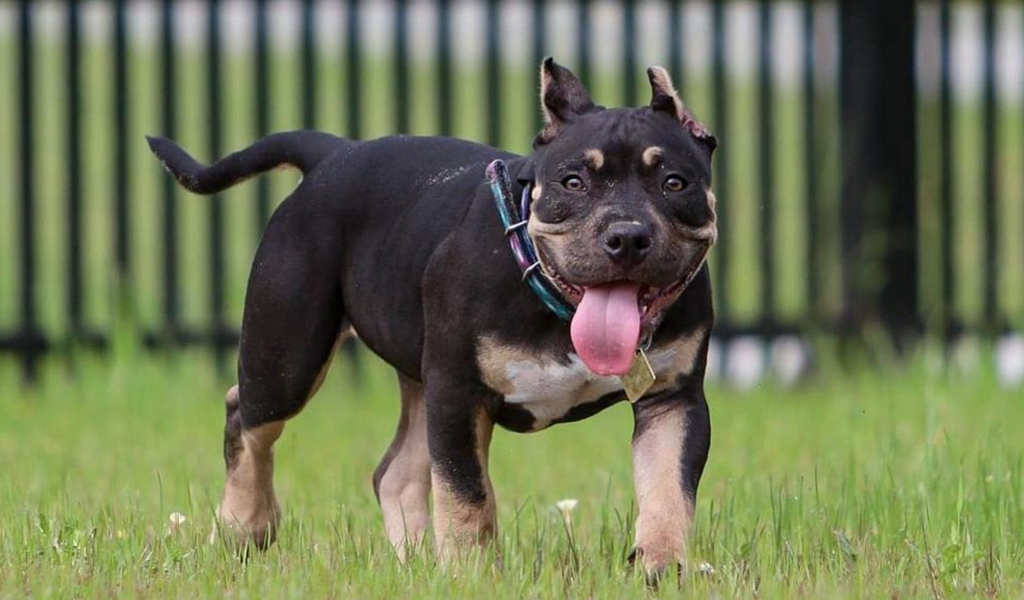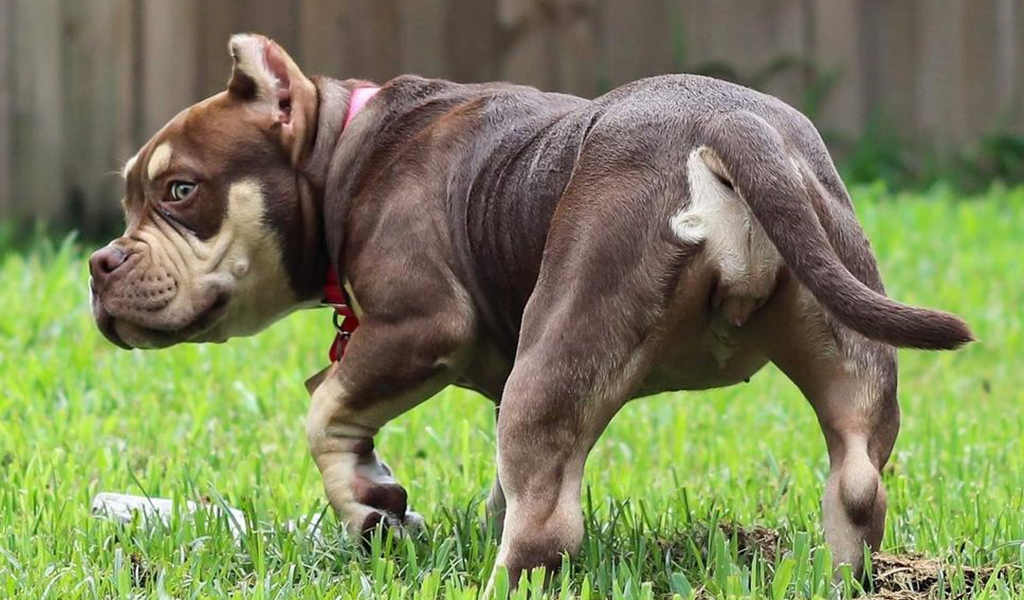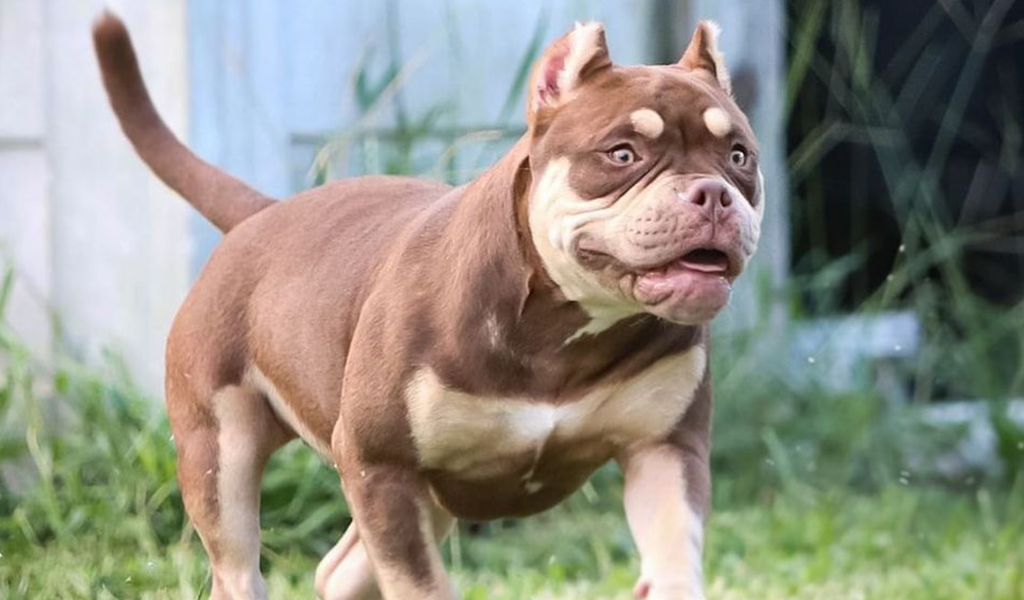The Pocket Pitbull is a designer dog, a planned cross between the American Pit Bull Terrier and the Patterdale Terrier. In England, the United Kennel Club recognizes these two terrier breeds, but not yet by the American Kennel Club.
The Pocket Pitbull, sometime called the Miniature Pitbull or Pocket Bully, is the shorter version of the American Pitbull Terrier. They were generated by breeding the Patterdale Terrier with an American Pitbull or American Staffordshire terrier.
Content Overview
- About Pocket (Miniature) Pitbull
- History Of The Pocket Pitbull
- Appearance and Characteristics
- Personality and Temperament
- Activities, Health Problems & Care
- Pocket Pitbull Puppy Information
- Advantages & Disadvantages
- Questions related to Pocket Pitbull
- Pocket Pitbull Images
About Pocket (Miniature) Pitbull
The Pocket Pitbull is the outcome of dogs breeding a small Patterdale Terrier and an American Pitbull Terrier or American Staffordshire terrier. These pups were the first breed to cherrypick the best characteristics from every parent breed, believing that undesirable traits could be minimized.
As they are mixed breed dogs, the Pocket Pitbull is not acknowledged by the American Kennel Club. This is because they are a comparatively new breed, but don’t let this put you off there are several people out there who love this dog! Pocket Pitbull is not for everybody, but this miniature is a wonderful small dog with a heart produced of gold.
Different names
-
- Pitterdale
- Pocket Pit Bull
- Pocketpit
- Pocket Pit
History Of The Pocket Pitbull
The Pocket Pitbull is the consequence of reproducing a little Patterdale Terrier and an American Pitbull Terrier or American Staffordshire Terrier. In the beginning, these pups were bred to select the best characteristics from each parent breed in the hope of reducing undesirable traits.
The breeders desired a dog of the small Patterdale Terrier’s compact size with the active and friendly characteristics of the American Staffordshire Terrier.
The American Kennel Club (AKC), American Canine Hybrid Club, The National Hybrid Registry, and the International Designer Canine Registry do not recognize the Pocket Pitbull because it is a hybrid dog.
Origin of the Breed
We do not know when the Pocket Pitbull was first developed. These pups started being deliberately bred in the last 20 years, so it is likely that the first generation was a mistake. As a brand-new hybrid breed, little is known about them or where they came from.
We can, however, examine their parent breeds to provide some insight into their origins.
The Lake District region of Northern England is where Patterdale Terriers originate. Due to the rocky and hilly terrain of the Lake District, tough dogs were needed to protect livestock there.
The Patterdale Terrier’s introduction to the United States is difficult to pinpoint, but it is generally accepted to have occurred in the 1960s.
The popular spectator sport of bull and bear baiting inspired the breed of Pitbull Terrier that was developed in early 19th-century England. They were thought to be fighting dogs who were aggressive, but it was also known that they were very kind to people and made good family dogs.
These Pitbull Terriers started new careers as all-purpose farm dogs when they came with immigrants to the United States. They were responsible for companionship, protecting the property from animal intruders, and hunting game.
These bull dogs were given the name American Pitbull Terrier in 1898 by the UKC, which is the British equivalent of the AKC. In the early 1930s, these dogs were given the name American Staffordshire Terrier by the AKC.
They wanted to set this dog apart from other fighting dogs. Therefore, the American Pitbull Terrier is not currently AKC-registered.
Appearance & Characteristics
Appearance
Pocket Pitbull is a little, compressed dog yet muscular with a lightweight, broad chest. The legs are short and muscular, too, and have large neck and big head. The Pocket Pitbull is a brachycephalic breed, which indicates their face is flattened.
Pocket Pitbull might also requires about two to three years to mature. After that, this breed typically looks more like their Pitbull parent, although this can vary.
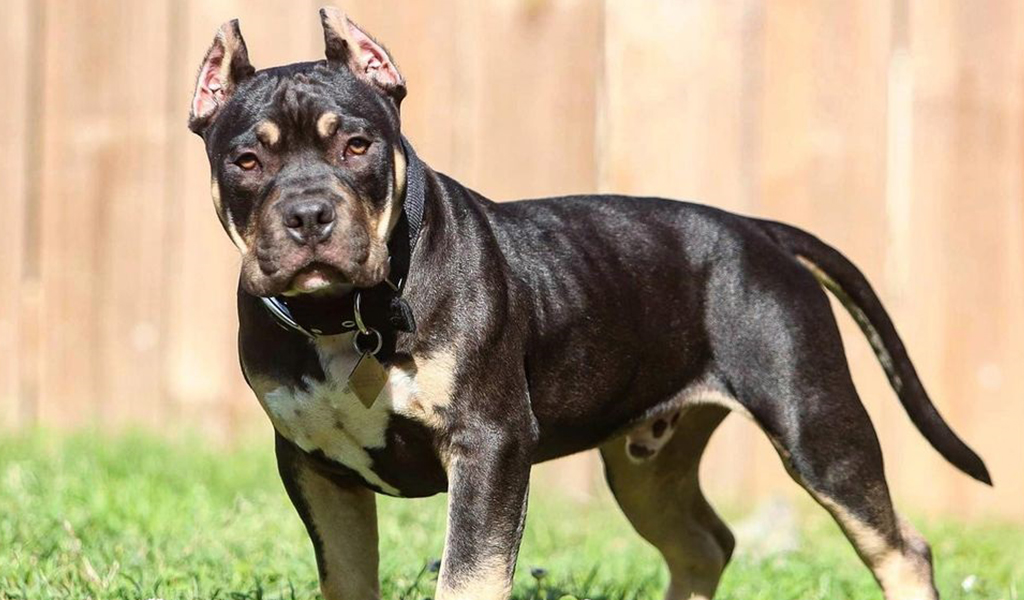
Size: Pocket Pitbull ranges in height from 12 to 16 inches at the shoulder and can weigh anywhere from 5 to 10 kg.
Head: The head is of large length, with a broad, flat skull, and a wide, deep muzzle.
Skull: Pocket Pitbull has a skull that is slightly more wedge-shaped with a narrower muzzle.
Neck: The neck is heavy, slightly arched, tapering from shoulder to back of skull.
Body: The Pocket Pitbull is an ingenious and energetic breed that maintains a small but stocky stature.
Serious Faults: Coughing, Weight loss, Difficulty exercising, Loss of appetite, Breathing difficulties, Fatigue, Trouble sleeping
Tail: The tail is a medium length thin and set on as a natural extension of the topline, and tapers to a point.
Color and Markings: There is a large range of colors that the Pocket Pitbull can come in. This includes red, blue, black, blue and tan, black and tan, fawn, black brindle, brown, chocolate, white and seal and buckskin. They can also be solid in color or they can have markings.
Characteristics
- Breed Type: Mixes and More
- Size: Small (Miniature)
- Height: 12 to 16 inches
- Weight: 11 to 22lb
- Lifespan: 11-13 Years
- Trainability: Quick Learners but May Be Stubborn
- Exercise Needs: Fairly High
- Grooming: Moderate
- Barking: High
- Shedding: Average
- Protective Ability: Good with Kids
- Suitable For: More Experienced Owners, Active Owners, Families with Older Children
- Space Requirements: Gardens and yards
- Compatibility with Other Pets: Good
- Litter size: 5-8 Puppies
Personality and Temperament
Personality
A well-bred and well-socialized Miniature Pitbull will be an affectionate, playful, and loyal canine with a commonly easy-going but protective energy. This dog is very intelligent and needs lots of mental stimulation to stop them from becoming fatigued and presenting unfavorable behavior. They are generally considerably observed and guard their family as both of their parent breeds are generally used as watchdogs.
Temperament
The temperament of this Pocket American Pitbull Terrier may change according to breeding because it is a crossbreed of two purebred dogs. For the most significant part, however, the dog is a friendly breed that can be very faithful and devoted to family.
In addition, these dogs are fearless and smart, so they need few levels of mental stimulation in enhancement to daily physical exercise. These dogs tend to get on a pack-leader-type role, so advanced socialization and training is compulsory.
Activities, Health Problems & Care
The Pocket Pitbull is an active and energetic dog that stays the most joyful and most normal when it gets at least an hour of energetic exercise a day, usually divided into two or three shorter exercise sessions. Pocket Pitbull with white or light fur may be more inclined to promoting skin cancers than additional dogs and should appropriate sun block created for canines to preserve them from the damaging ultraviolet rays.
Behavioral Traits
These dogs are assured and smart, so they need any level of mental stimulation in supplement to daily physical exercise. These dogs tend to take on a pack-leader-type role in certain cases, so early socialization and training is compulsory. These dogs can stay along well with children, delivering them great family pets for energetic families.
Trainability
Pocket Pitbull can have a natural guarding ability that delivers them great guard dogs and watchdogs and proves just how faithful they are to their families. They can be known to bark, but this can be fixed when trained from a young age. Due to their high intelligence, the Pitbull Mix is extremely comfortable to train.
Health & problems
The most typical health problems found in a Pocket Pitbull are hypothyroidism and breathing complications. With these circumstances, they can become inactive, gain weight, and struggle to keep up with their regular routine. Therefore, they require having routine supplements to maintain their health and limit them from over-exercising.
Pocket Pitbull is a hardy and healthful breed, but this dog may be inclined to producing specific health problems associated to their short faces and stocky body formation. As the offspring of two purebred dogs, the Pocket Pitbull Withstands inherited breed-specific health problems from both parents. These incorporate hip dysplasia, hypothyroidism, heart issues, allergies, and several health problems with their eyes.
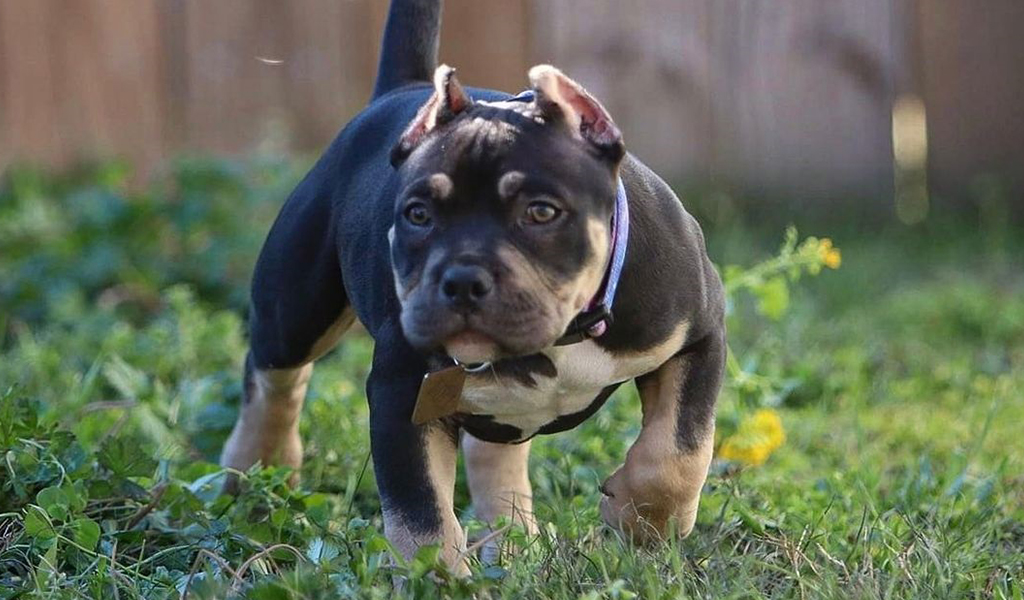
How to Take Care of Pocket Pitbull?
Exercise
These dogs are amazingly energetic for being such a short, stocky breed, and they are also extremely talented. A Pocket Pitbull requires approximately one hour of exercise each day, but this shouldn’t just be restricted to walking on a leash. They also suit in great in a house with a garden where they can run and play. Also, since it is a fabulous exercise partner, you don’t have to struggle hard training it to succeed.
Grooming
Pocket Pitbulls have a very small, low-maintenance coat. This is an excellent message for you, as these dogs generally do not require regular grooming or bathing. As a common rule, this dog will need brushing weekly, and this is because their coat is ordinarily a short, shiny, unusual coat. It would help if you demanded some level of shedding, as is correct with nearly all breeds, but it is simple to restrain with frequent brushing.
Dental Health
Sharpening chews or regular dental chews are ordinarily adequate besides a kibble diet in keeping their teeth clean and healthy. However, you will require to keep their teeth cleaned to detain dental decay and infections. Brush your dog’s teeth almost two or three times a week to eliminate tartar buildup and the bacteria that lurk inside it. Regular brushing is even more beneficial if you require to prevent gum disease and bad breath.
Love & Afection
The Pocket Pitbull is a loving breed that can be extremely faithful and affectionate with the family. A well-bred and well-socialized Pocket Pitbull will be an affectionate, playful, and faithful canine with a regularly easy-going but guarding constitution. This breed is loyal and affectionate with family and, when accurately trained and socialized, they do well with children.
Feed Healthy food
Feeding a healthy meal in the dog’s life is the most important. On this day, there are many healthy foods available on the market to choose any healthy food for your dog. Healthy food is the most crucial for dog health care.
For the Pocket Pitbull, the most suitable alternative is premium dry food for dogs. Kibble that’s produced from high-grade constituents and formed to meet your dog’s requirements will be all they need to grow and live a long and happy life.
How to feed your Pocket Pitbull puppies?
Due to the small size of the Pitbull Patterdale Mix, they do not need much food. A dog of this size should be eating approximately 400 calories a day, which compares to about one cup of kibble.
A high-quality kibble diet is suitable for this dog, feeding them twice a day, once in the morning and the evening.You can feed lower amounts of food these nutrients to a younger dog to keep her joints healthy, while an older dog already experiencing joint endeavor can do well on a portion of food with higher expenses.
Always guarantee that the food you serve your Pocket Pitbull is nutritious and high-quality. Based on their size, you can check the back of the food package to determine the proper amount of a particular food they need depend on their weight.
Nutritional Requirements for Pocket Pitbull
- Protein
Protein is a vital source of energy for these dogs. The said nutrient also fosters the optimal growth of the dog. Specifically, their diet should contain at least 25% of Protein. Using an adequate amount of Protein in your dog’s recipe guarantees your pup’s high energy needs are satisfied while also supporting them to support a healthy weight with the appearance of L-carnitine.
- Calories
As mixed-breed dogs, Pocket Pitbulls require high-quality kibble food of up to 400 calories each day. They should be fed once in the morning and once in the evening. Because of their miniature size, they will require fewer dog diets than their parent breeds. The number of dog food delivered to any dog requires customized to gratify their strength levels, so it is suggested that owners advise their vets about their Pocket Pitbull’s particular dietary requirements.
The following items should never be feed to the Pocket Pitbull
-
- Alcohol, beer, wine or liquor
- Chocolate, coffee, or tea
- Grapes or raisins
- Onions, chives, and garlic
- Poultry bones
- Salt & salty foods
- Tomato leaves stem or unripe fruit
Pocket Pitbull Puppy Information
Puppy Training
The Pocket Pitbull tends to be self-confident and self-governing, so initial socialization and training must be suggested. However, this breed is intelligent, so positive support methods are typically very efficient as long as you keep a firm and constant hand in training.
Training will also assist in keeping this dog’s energy and activity level below prevention and prevent him from developing difficult behaviors associated to boredom or inadequate training.
Behavioral training
They require several mental and physical stimulation to detain the growth of obstacle behaviors. Mental stimulation is essential for the Pocket Pitbull because they will be further likely to become bored and present unfavorable behaviors without it. Seldom, the Pocket Pitbull can obtain the prey drive of the Patterdale Terrier, but, fortunately, this can be trained out of them.
Best toys for Pocket Pitbull Puppies
If you’re searching around for the best dog toys for Pocket Pitbull puppies and want to be sure that you made the right decision before spending your money on something your furry buddy won’t end up destroying only a few days later? Don’t worry, because you are in the right place.
We list out some best toys for your miniature pitbull puppies.
-
- KONG Extreme Dog Toy
- Mammoth Flossy 3-Knot Rope Tug
- GoughNuts TuG Toy
- WestPaw Zogoflex Tux
- Nylabone DuraChew
Pocket Pitbull Puppy Price
The Pocket Pitbull puppy will cost between $500 to $3000. Unfortunately, he is a new crossbreed, and the Pitbull is a very famous dog, so the possibility of preparing a shorter version requires several people.
Pocket Pitbull Puppies for Sale
Typically, a Pocket Pitbull puppies for sale will cost between $ 500 and $ 300 USD and must be purchased from a recognized breeder. Additionally, prospective owners require to memorize that Pocket Pitbull puppies may take up to three years to fully mature as Patterdales can take 14 to 16 months, while American Pitbulls mature after two or three years. Keeping these features in mind can assist Pocket Pitbull owners in making the right conclusions concerning their Pocket Pitbull friend’s growth.
Things to consider adopting a Pocket Pitbull Puppy
-
- If you’re seriously considering adopting Pocket Pitbull, you should know.
- Before you adopt a Pitbull, consider how much time your new family member will spend alone. Remember, a puppy requires constant attention.
- Before you adopt a puppy, ask yourself if you are available to walk your dog several times throughout the day.
- You also have the advantage of knowing that your dog is physically able to “hold it” for several hours at a stretch.
- Ask anybody who has adopted an adult dog then after adopts an adult dog.
- If you’re unsure of whether the new dog you’ve chosen is right for your family and lifestyle, consider fostering before making a commitment.
Advantages & Disadvantages
Advantages of Pocket Pitbulls
-
- Lively with a friendly personality
- Has a short, easy-to-care-for coat
- Intelligent, friendly, and easily won over
- An affectionate companions and a family dog
Disadvantages of Pocket Pitbulls
-
- Aggressive toward other animals
- Needs daily exercise
- Overprotective of family and territory if not socialized properly
- Sees cats and small animals as prey unless trained otherwise
Questions related to Pocket Pitbull
1. What distinguishes a pocket Pitbull from a standard Pitbull?
Pocket Pitbulls are a smaller version of the standard pit bull, as their name suggests.
2. Do pocket Pitbulls aggressive?
Although pit bulls are “less tolerant” of other dogs than many other breeds, they are generally not aggressive with people.
3. Do Pocket Pitbulls love people?
In general, pit bulls have an incredible love for people, which makes them great family members. They are devoted cuddlers who thrive on human contact. Pitbulls are extremely devoted, and the emotional bond between them and their owners is unlike any other.
4. Are pocket Pitbulls intelligent?
They are well-known for their intelligence and skill at playing games and learning new skills.
5. Are pocket Pitbulls beneficial for new dog owners?
They are powerful animals. Therefore, it does not recommend them for new dog owners.
Pocket Pitbull Images
